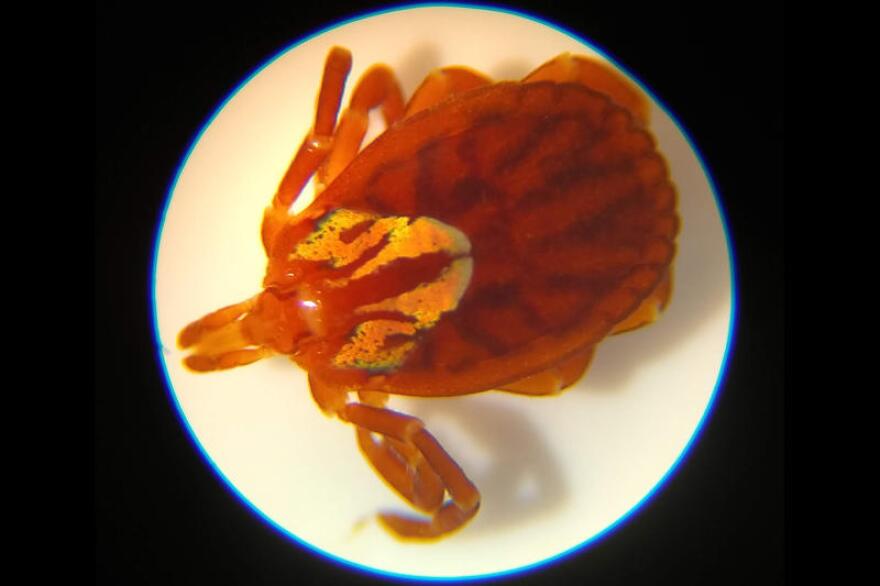Indiana University researchers have spotted a tick rarely seen in the state. The Gulf Coast tick is usually found along the Gulf and Atlantic coasts. But researchers say it's moving north — and climate change could be the cause.
IU professor emeritus Keith Clay leads Project Vector Shield — which monitors tick and mosquito movements in the state. He says warmer winters may have allowed the tick to survive in states north of its usual range.
“It may be the tip of an iceberg — these populations of Gulf Coast ticks may be more prevalent than we realize,” Clay says.
Though Clay says humans and animals could also have carried the tick to Indiana.
Bryan Price is the senior medical entomologist for the Indiana State Department of Health. He says the Gulf Coast tick can carry Tidewater spotted fever — which causes fever, headaches, muscle aches, and a rash.
“It’s a disease that's very similar to Rocky Mountain Spotted Fever, but it's actually not as severe,” Price says.
Price says fortunately both diseases can be easily treated with antibiotics. The ticks can also make animals sick — sometimes they’ll cluster behind the ears of livestock.
The tick has only been found twice in Indiana so far. Project Vector Shield found one in Posey County this year. The Indiana State Department of Health confirmed the first in Gibson County in April 2018.
Keith Clay says right now, you shouldn’t worry too much about the Gulf Coast tick. But he says it’s always a good idea to dress appropriately when going out in brushy areas during prime tick season — April, May, and June.
Clay describes the Gulf Coast tick as a tobacco brown tick with long mouth parts like a needle nose pliers. It's also bigger than the lone star tick or black legged "deer" tick.
Project Vector Shield plans to do a thorough search for more of the ticks in southwest Indiana next spring.
Contact Rebecca at rthiele@iu.edu or follow her on Twitter at @beckythiele.
Indiana Environmental reporting is supported by the Environmental Resilience Institute, an Indiana University Grand Challenge project developing Indiana-specific projections and informed responses to problems of environmental change.

